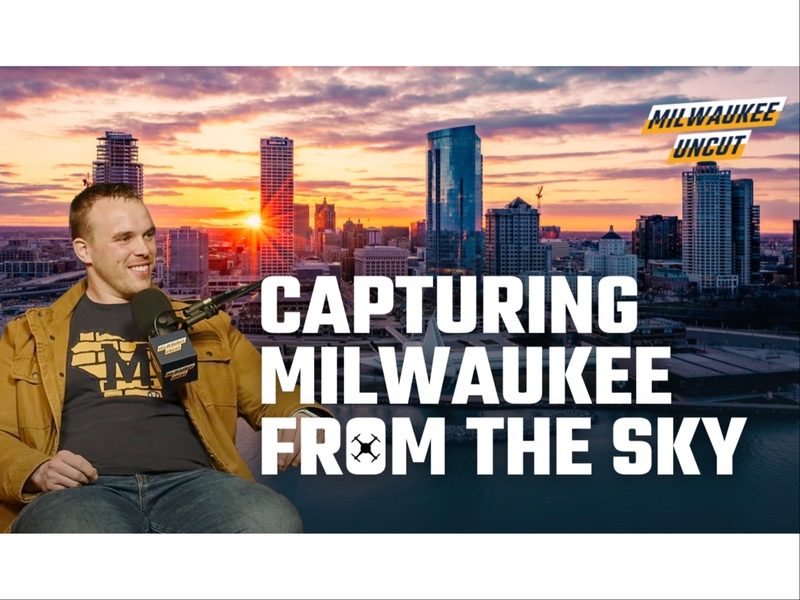Learning from your own mistakes is a tough but necessary part of personal growth. Whether it’s in business or your personal life, recognizing when you've made a mistake and course-correcting for next time a situation arises is a critical part of continuous improvement.
But sometimes, it’s just not that simple. We can be blind to our own mistakes and weaknesses, and those in leadership roles are no different. Our local community and business leaders are just as susceptible to the old-as-dirt adage: History repeats itself. But why is that?
(Psssst: You can listen in here to hear some seriously smart people discuss why.)
In short, it’s not a lack of experience; it’s a lack of connection. When it’s time for the current generation to retire and head to Maui for a few well-deserved mai tais, have they really shared all there is to share with the next generation of people coming in to fill their shoes?
In most cases, probably not. I’m not just talking about a single position in a company changing hands – I’m talking about entire networks of leaders across a community of businesses, local organizations, nonprofits, boards and so on.
Over time, those leaders develop connections with one another. They learn how to work collaboratively to solve community-wide problems, tackling big issues like homelessness, racial inequity and police brutality. They know who to call for what problems they’re facing, and perhaps most importantly, they know exactly how they’ve failed in the past.
But typically, over time, these networks dissolve as leaders retire and pass the baton. That knowledge and experience that took a lifetime to accumulate simply dissolves and goes to waste.
It’s a shame that all that experience is just gone, with no way to pass it along to the next generation of leaders.
To exacerbate the problem, new leaders coming in might know about their own organization – but they certainly don’t know each other. They might be coming into a role as CEO, mayor, director or board member, but don’t know other community leaders from Adam.
That’s a big issue. It takes a lot of time to build those connections, to get to know people and how to work with them. If someone is stepping into that role at 48 years old, it might take them a good five or ten years before they’re truly settled and comfortable, knowing what’s really happening behind the scenes.
If only there was a way to make current leaders accessible to the next generation. If only there was a way to connect the next wave of leaders to each other before they stepped into those big shoes…
Since you’ve read the title, you know that’s not me actually pondering those things above. Lucky for us, the brilliant folks at Forward 48 have already pondered those problems and created an organization to specifically tackle those issues.
They’re focused on connecting current leaders to those that will someday fill their shoes in the hopes that they’ll share their shortcomings along with their successes. The hope is that, with the right connections, we can avoid past mistakes as a community and focus on continuous improvement to make a lasting impact.
Forward 48 is also here to connect the next generation of leaders to each other, ensuring they have a chance to make connections with a diverse group many, many years before stepping into the saddle themselves.
This means their connections can be built naturally and gradually over coffees and beers fifteen or so years before needing to put them to use on a grander scale.
Of course, this also benefits everyone in the short-term, too – having a list of brilliant peers in your back pocket that you feel comfortable dialing up for advice on the daily can only benefit Milwaukee’s work culture as whole. Having a powerful arsenal of perspectives in your pocket means access to unique insights for any situation. And that’s dang good thing.
On this episode of The GoGedders podcast, host Richie Burke sits down with Ian Abston (creator of Forward 48 and The Hoan Group), Thelma Sias (former VP of Local Affairs at WE Energies; board member for United Way of Greater Milwaukee, Children's Hospital, African American Women’s Project and Boys & Girls Club of Milwaukee; advisor to Forward 48, and more) and Fiesha Lynn Bell (associate director of Major Gifts at the Greater Milwaukee Foundation, member of MBJ’s 2021 40 Under 40, leadership board member of Milwaukee Urban League for Young Professionals) to talk all things Forward 48.
Since these folks are so decorated, I’m starting a new paragraph to tell you what they’ll be discussing in the episode.
In addition to telling the story of how Forward 48 came about, they’ll cover how Milwaukee can better retain top talent, develop its young leaders, and grow as a city from a social, cultural and economic standpoint. They also discuss the importance of inclusion when it comes to leadership, and how Forward 48 is cultivating the next generation of leaders from a variety of ages, genders, ethnic backgrounds and perspectives.
Gabe is bringing you stories on Milwaukee that matter. Tune in for The GoGedders Podcast every Tuesday.







